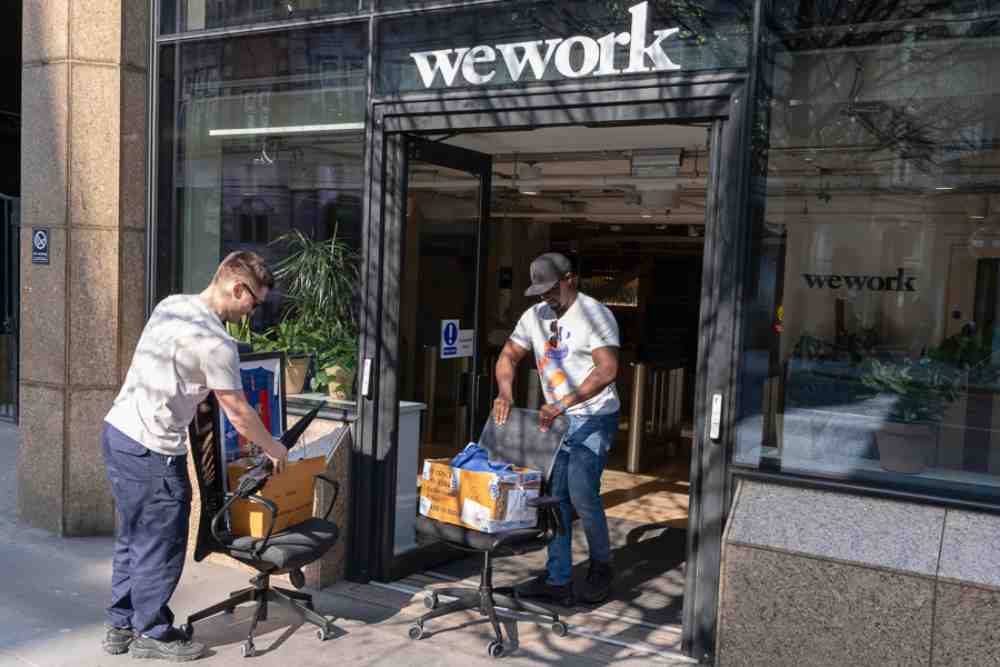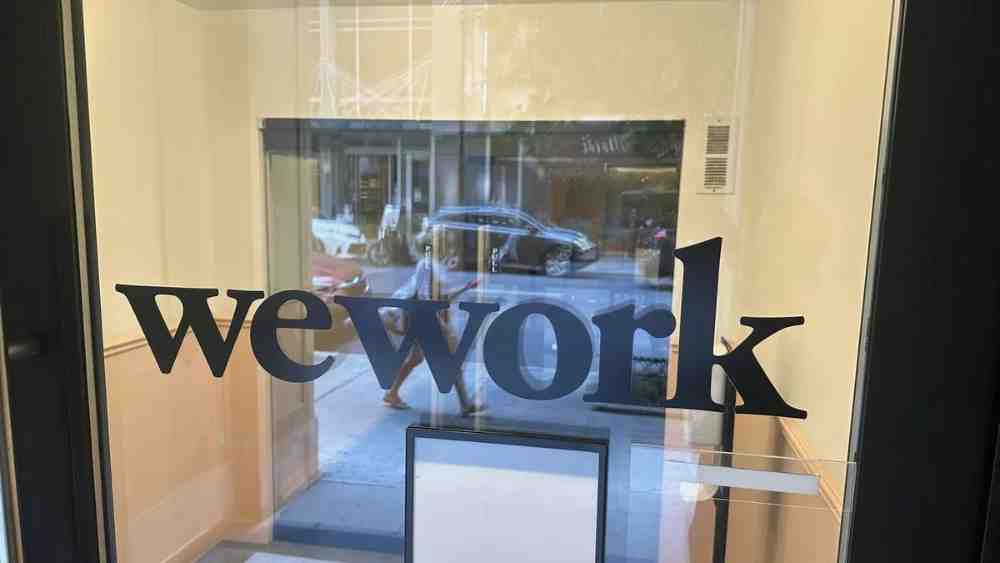The saga of WeWork, once a shining star in the startup universe with a staggering valuation of $47 billion, has taken a dark and tumultuous turn. The flexible workspace provider, known for its revolutionary approach to office space, recently sought refuge in U.S. bankruptcy protection. The crippling debt burden, exacerbated by the dwindling demand for office space among cost-conscious clients, has raised significant concerns about the sustainability of the WeWork model. In this article, we will delve into the remarkable rise and catastrophic fall of WeWork and extract essential lessons that startups can adopt to navigate the treacherous waters of entrepreneurship.
1. The WeWork Phenomenon:

Founded in 2010, WeWork emerged as a game-changer in the office market. The company’s unique model involved leasing large properties and subletting them to smaller businesses on flexible and shorter arrangements. WeWork’s approach represented a break from traditional property ownership, and it expanded at an unprecedented pace. While this rapid growth increased revenue, it also led to significant losses, highlighting the delicate balance between expansion and profitability.
2. Charismatic Leadership and Its Pitfalls:

At the heart of WeWork’s rise was its charismatic CEO, Adam Neumann. His vision and audacity were integral to the company’s initial success. However, this very charisma, coupled with a relentless pursuit of growth at the expense of profitability, ultimately led to Neumann’s ouster and the derailment of WeWork’s ambitious initial public offering in 2019. The WeWork narrative underscores the need for startup leaders to strike a balance between audacity and responsible decision-making.
3. The Meteoric Fall:

WeWork’s fortunes reached their zenith with optimistic predictions from SoftBank founder Masayoshi Son. In 2019, the company embarked on a highly anticipated IPO with Neumann at the helm. The company’s parent, We Company, dedicated months to prepare for the public offering. However, the IPO imploded spectacularly as investors raised concerns about WeWork’s staggering losses and questioned Neumann’s management style and corporate governance lapses. By 2021, the company’s valuation had plummeted to a mere $10 billion. The transformation of WeWork’s rise and fall into a television series, “WeCrashed,” featuring Oscar winners Jared Leto as Neumann and Anne Hathaway as Rebekah, serves as a stark reminder of the company’s roller-coaster journey.
4. COVID-19 Accelerates the Crisis:

The COVID-19 pandemic dealt a significant blow to WeWork. As the pandemic prompted a swift shift toward remote work, corporate clients began cancelling agreements, and the demand for office space plummeted. WeWork responded by attempting to amend its leases and restructure its debts, but these efforts were insufficient to stave off its inevitable bankruptcy.
5. The Bankruptcy Protection Move:

WeWork’s decision to seek bankruptcy protection was driven by the weight of expensive leases and the cancellation of corporate agreements. The company had long-term lease obligations amounting to a staggering $13.3 billion by the end of June. Approximately 92% of the company’s lenders agreed to convert their secured debt into equity under a restructuring support agreement, effectively reducing the debt by about $3 billion.
6. Lessons for Startups:
WeWork’s dramatic journey carries invaluable lessons for budding startups:
Profitability over Growth: The pursuit of rapid expansion should not come at the expense of profitability. WeWork’s ambitious growth strategy lacked a clear path to profitability, which eventually proved unsustainable.
Leadership Matters: Charismatic leadership can be a powerful asset, but it must be balanced with prudent decision-making and a commitment to the bottom line. Startups should avoid the pitfalls of charisma-driven leadership and prioritise responsible governance.
Adaptability and Resilience: The ability to adapt to changing circumstances, exemplified by the COVID-19 pandemic, is a crucial trait for startups. Resilience and the capacity to weather unexpected disruptions can make the difference between success and failure.

Sound Financial Metrics: Startups should maintain transparent financial metrics and avoid using innovative metrics as a smokescreen to conceal a lack of cash profits. Investors and stakeholders value honesty and fiscal prudence.
WeWork’s rise and fall serve as a stark reminder that even the most promising startups can falter if they prioritise growth at the expense of profitability and neglect responsible leadership. The disruptive impact of the COVID-19 pandemic underscores the importance of adaptability and financial stability for startups. As emerging companies chart their course, they should heed the lessons from WeWork’s tumultuous journey and strive for a balanced approach that ensures their long-term success in the ever-evolving world of entrepreneurship.
